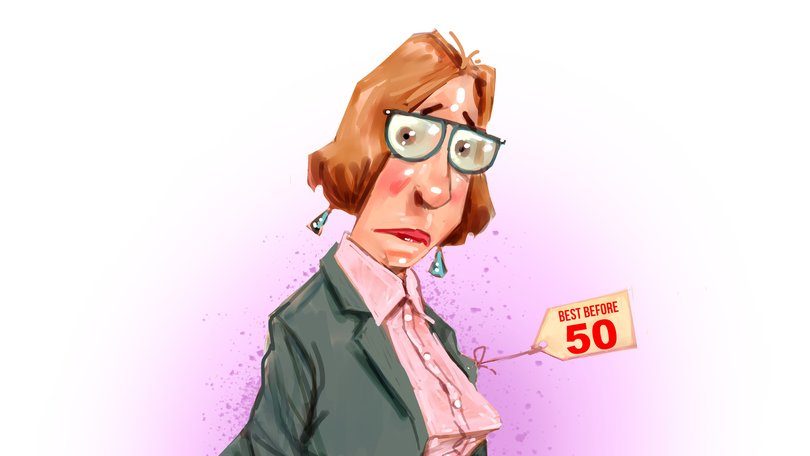KATE EMERY: Writing off workers over 50 hurts more than just morale, it’s bad for business
KATE EMERY: If life begins at 50, someone forgot to tell your boss — and it’s costing older workers more than just opportunity.

Another day, another new and exciting fear about ageing unlocked.
Still worrying about the wrinkles turning your face into a contour map, the mood swings heralding the pitter patter of perimenopause, or the microplastics so well established in your body by now that they’ve achieved squatters’ rights?
Or maybe your concern is that your stomach no longer stops moving when your feet do, your hairline is making a bid to connect with your back hair or that you spend most of your time standing in a room trying to remember why you walked in there?
Sign up to The Nightly's newsletters.
Get the first look at the digital newspaper, curated daily stories and breaking headlines delivered to your inbox.
By continuing you agree to our Terms and Privacy Policy.How very 2024 of you.
The 2025 thing that those of us on nodding terms with middle age need to worry about is that a growing number of bosses — as many as one-quarter of them — now think we’re over the hill once we pass 50.
This feels unfair on a number of levels.
For one thing, it means the coffee cup I once saw with the slogan LIFE BEGINS AT 50 was lying to me that whole time.
For another, if we’re all living longer and working longer, why are bosses increasingly keen to cart us off like we’re Boxer from Animal Farm? (Boxer was coming up on 12 when he was sent to the knackery, by the way, which is middle-aged for a horse).
This workplace ageism feels particularly frustrating for women, given that many pull back from work in their 30s and 40s to have and raise kids. These mums are coming back to work later in life armed with a set of certain skills that can only be gained through negotiating with a hangry toddler, only to be told they may as well save time and roll themselves into a shallow grave right now. Professionally speaking.
This new fear to keep you busy at 3am comes courtesy of a report by the Australian Human Rights Commission and the Australian Human Resources Institute.
Having surveyed 138 Australian employers, this report found that nearly one quarter (24 per cent) of HR professionals classified workers over 50 as “older” workers. That compares to 10 per cent who said the same two years ago.
Only just over half (56 per cent) of those surveyed said they were open to hiring workers aged 50-64 “to a large extent”.
Your first response to this report might be to scoff at HR professionals: what do they know anyway?
Not enough to avoid conducting an affair with their tech bro boss at a Coldplay concert, if you’ve been following the viral story about the (married) Astronomer chief executive who got busted canoodling with his head of (also married and not to him) human resources on a “kiss cam” at a Coldplay concert.
And, yes, I apologise for so shamelessly shoehorning in a reference to my favourite story of the year, but it’s a rare story that combines the three things it’s socially acceptable to hate: rich bosses, cheaters and HR.
But this Australian report seems to be less of a case of rampant ageism among HR recruiters and more a reflection of widespread ageism in society, which shows up in other surveys and complaints to the country’s equal opportunity commissions. Even beauticians have been saying for years they’re giving Botox to particularly men whose concern is all about the boardroom, not the bedroom.
Likely there are some industries where youth is an advantage. Labourer? Perhaps. Model? Probably. 19th-century chimney sweep? Absolutely. Those flues simply aren’t going to cope with hips that have gone through puberty.
But in plenty of jobs, the experience that comes with age is an advantage: the veteran journo who knows everyone (and has their phone number), the GP who catches what the fresh-faced graduate missed because they’ve been seeing 20 patients a day for 40 years, the hardware store employee who can tell you the difference between a Zenith 12G x 50mm galvanised dome washer head roof screw and a Bulldex 11 x 65mm MG Hex Head with seal roof zip screws — and which aisle to find them in.
Part of the issue with ageism at work is about technology: those over 50 are perceived to be less likely to be up-to-date with it or capable of up-skilling. In this latest report, older workers were highly rated on loyalty, reliability and ability to cope with stress but poorly on their technology skills and energy levels.
Interestingly, at the other end of the spectrum, younger workers forged in the fires of Instagram filters and getting ChatGPT to write their uni assignments are also facing age discrimination despite being digital natives. That same report found just 41 per cent of employers surveyed were open to recruiting those aged 15 to 24 “to a large extent”.
All of which makes me think that would-be employers regard workers in very much the same way that I regard avocados: absolutely useless when I bring them home from the shop, briefly utter perfection and then almost immediately past their prime.
Which might be fine for avocados but is a little short-sighted if it’s people you’re chucking in the FOGO bin.
Originally published on The Nightly
